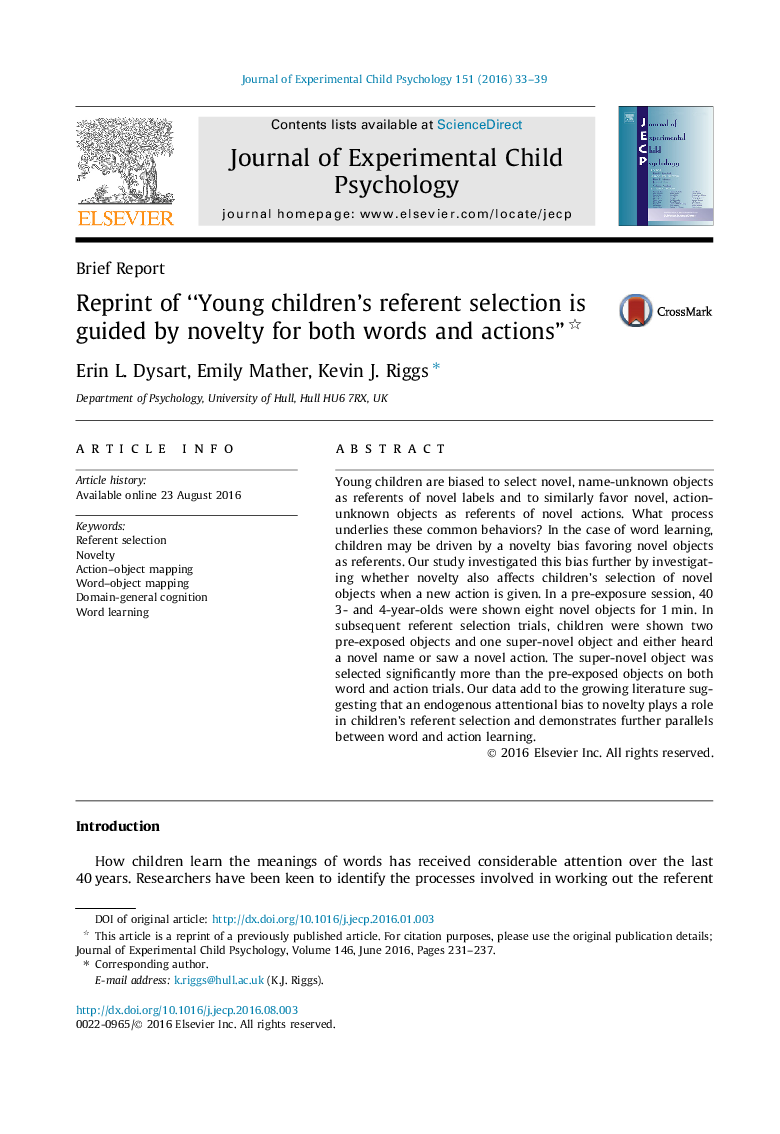| Article ID | Journal | Published Year | Pages | File Type |
|---|---|---|---|---|
| 5040084 | Journal of Experimental Child Psychology | 2016 | 7 Pages |
â¢We investigated the role of novelty in referent selection with novel actions.â¢Children select the most novel object in both novel action and novel word referent selection tasks.â¢Novelty plays a role in referent selection with novel actions.â¢Word learning relies on domain-general attentional biases that extend to action learning.
Young children are biased to select novel, name-unknown objects as referents of novel labels and to similarly favor novel, action-unknown objects as referents of novel actions. What process underlies these common behaviors? In the case of word learning, children may be driven by a novelty bias favoring novel objects as referents. Our study investigated this bias further by investigating whether novelty also affects children's selection of novel objects when a new action is given. In a pre-exposure session, 40 3- and 4-year-olds were shown eight novel objects for 1Â min. In subsequent referent selection trials, children were shown two pre-exposed objects and one super-novel object and either heard a novel name or saw a novel action. The super-novel object was selected significantly more than the pre-exposed objects on both word and action trials. Our data add to the growing literature suggesting that an endogenous attentional bias to novelty plays a role in children's referent selection and demonstrates further parallels between word and action learning.
